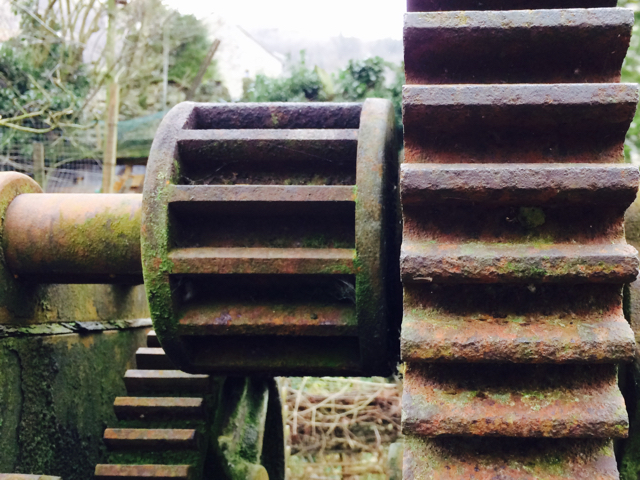We live in a time of rapid and accelerating technological change. It is the age of digital, big data and smart technology. The digital zeitgeist is presented with a benign face: faster, more connected, more megapixels, do more, see more. But over the last couple of years I’ve had a feeling that in the race to embrace these new digital tools we are forgetting pre-digital ways of doing things which might turn out to have been more useful, more sustainable and better for us. Things like how to communicate face-to-face, how to communicate in written long-form (even the long email is a thing of the past), how to read a map, how to spell, how to sketch, how to make an appointment and keep to it, how to concentrate, how to make things, and even how to take notice of our physical environment.
The name I am giving to this pre-digital ways of doing things is ‘analogue skills’. As an on-going project, I plan to explore what analogue skills it would be worthwhile keeping hold of, and to interrogate the digital tools at our disposal to see how to make good use of those without detriment impact to our well-being or to the planet. I hope the outcomes of this project will be to produce some suggestions for how we can use the tools at our disposal, both analogue and digital to improve our experience and quality of life.
Of course, there are many ways in which digital tools empower us: wide-spread and long-distance communication; access to information and knowledge sharing; access to an almost unlimited range of media; online commerce and sharing economies; increased connectivity through social media – and I benefit from all of these.
But there are also costs. More screen time means less time experiencing the physical environment.The flip side to the benefits of social media is the social anxiety in can cause, fear of missing out – so called FOMO. The huge choice of media that the Internet offers can lead to a sense of being overwhelmed and lower levels of engagement with the content. Digital consumption is dependent on technologies over which consumers have decreasing amounts of control – no longer are we necessarily the masters of our tools – and with built-in obsolescence, these technologies have a large environmental impact.
Around me, I increasingly see the signs of digitial discontent. Friends talk about digital detoxes and commit ‘Facebook suicide’. At Hazel Hill Wood, where I co-lead conservation weekends, there is no mobile phone reception. Most participants are relieved for this enforced time offline. But there are usually one or two users per group who anxiously spend time at the one spot in the wood where they can get a feint signal and wave their handsets around in the air, like some ritual dance to the digital deity, in a desperate attempt to connect.
At this point I need to make a full disclosure: I write this post on an laptop, using notes that I made while walking along the street on the memo app on my iPhone, cross-referencing that with notes that I made in Evernote almost a year ago, which I will post to a website, which I will then share on social media. So yes, I am fully-signed up user of digital technologies. But there are plenty of digital things that I don’t use. For example, for the last year I have been trying to minimise the distractions of social media by removing notifications from my phone, and by limiting my screen time. For certain, I’ve been sceptical for some time about the digital panacea. This project is an attempt to martial these thoughts, to change my skills and habits and hopefully to help other people along the way.
I am fascinated by really cutting edge technology, the innovation that goes into it and the possibility it offers. But I do think that older technologies allow us to interrogate the new; indeed one of the most fascinating things about older technologies is finding out how the engineers of the day were using great ingenuity to extend what was possible within the limits of the technology of the time. Of course, digital technologies are here to stay, and in many ways for the better. What I think is important is making sure that is us who are smart and not just the technology.


Anne Soutry
I, for one, have for a long time railed against the amount of time taken in writing emails, however good your typing skills! Of course there are times when you have to write and a email is much faster than ‘snail mail’ in this day and age. This reminds me – I was born in England at 2am one day in 1953. My mother wrote to her parents in Paris on the same day to announce my safe arrival. Their delighted response and congratulations arrived back in England only 2 days later! What’s more, I have the correspondence to prove it. Somehow, I have a feeling that the equivalent email correspondence wouldn’t nowadays be filed and kept for over 60 years – and would our kids know our password?!
In business terms I like to stick to: never write when you can email, never email when you can phone, never phone when you can meet.